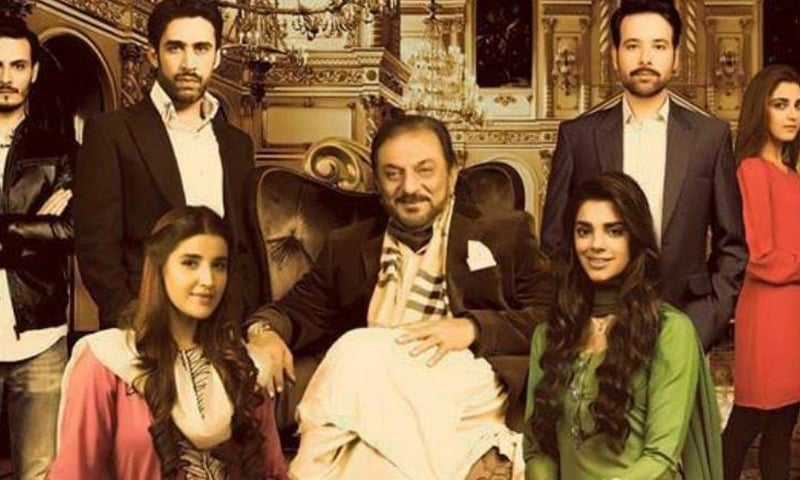For the greater good
Everything has its upside. While I have railed against foreign-sourced ads, they have at least achieved one thing: children and adults are accepted and glamourised even if they are not of the fairest variety.
However, we have a long, long way to go. Just as written in this comment piece, we have an obsession with fair complexions. It is considered a key to success and riches for our female population. In fact, some local vendors show a fair complexion as the key to opening doors. The multinationals present the same message with a sophisticated veneer, tossing around career and future – but the message is the same: get fair to get on.
Read: The conundrum of fairness.
What about glasses? Why do you think nerds when you think of thick glasses? What have nerds done to us? They are the Sergey Brins, Steve Jobs, Elon Musks of this world – without them, we would have run out of ways and mediums to make fun of nerds a long time ago. In our ads, glasses signify the ‘loser’ stereotype. Nescafé once showed a bespectacled, straight-laced girl having a sip of coffee and untying her hair, not to mention removing her glasses to prepare herself to barge blindly into the next available hottie.
To be fair, I believe that Hollywood is to blame for this. 'Losers' in Hollywood films are almost universally portrayed as nerdy, studious, not very good looking types who fail to make any headway with the opposite sex (which seems to be the one reason anyone goes to high school in the movies).
See Jonathan’s character in Stranger Things, an introvert who is into '70s rock, and far less physically attractive than his nemesis, Steve Harrington. He is not even actively pursuing his popular classmate, although they develop something of a bond thanks to the strange events in the series. Or take Lucas, a feisty black kid who is part of the core quartet of friends at the centre of the story. He first refuses to believe in the supernatural and has a fistfight with a friend over “Eleven”, the girl who has escaped from an alternate reality under mental and physical distress. Forgive me, but that comes across as a perpetuation of the black racial stereotype.
The current ad campaign for Lifebuoy hand-wash depicts a ‘loser’ who is guilty of using an ordinary antibacterial soap and thus taking a whole minute to wash his hands. He doesn’t look as healthy as the ‘cool kids’ who are using the hand-wash. Coincidence?
Teachers: do they always wear glasses and have a stern expression on their face? In countless ads for candies, biscuits and other confectionery, kids are shown misbehaving, scaring, even poisoning (so to speak) their teachers with their candy of choice. Witness this ad for Giggly Filly candy.
Peek Freans Rio’s very existence seems to be based on the idea that horrible things happen to elders when kids chomp on these sandwich biscuits. On the one hand we complain about the lack of education in our country, and on the other, we do everything to ensure that our kids hate the idea of schools and teachers – all the while chomping on spectacularly unhealthy candies and snacks!
See this as proof:
The problem with our national psyche goes deep. I would blame our golden age dramas! Remember classics by Haseena Moin such as Uncle Urfi, Ankahi, Tanhaiyaan and Dhoop Kinare? Uncle Urfi had a character called Hasnat bhai who wore glasses and spoke refined Urdu. Tanhaiyaan had Qabacha, who, again, was found speaking very literate Urdu. Also, Zara, the character played by Shehnaz Sheikh, took on villainous tones as soon as she decided to do something meaningful with her life. In Dhoop Kinare, Rahat Kazmi was portrayed as a bore because he excelled in his profession and cared about his patients compared to Marina Khan’s character who all but set the hospital on fire. Guess who drew the audience’s sympathy?
Compare and contrast this with dramas by writers such as Amjad Islam Amjad, Ashfaq Ahmed, Noorul Huda Shah, Mustansar Hussain Tarar and others, where the lead characters were always shown as literate, spiritually enlightened and strong willed, where folk wisdom and age warranted respect and where professional success was celebrated.
Fast forward to today and we see crying women everywhere in our dramas. People of a religious bent are unfailingly shown to be extremists, sadists and evil. Don’t blame our writers: they write what they saw and read in their childhoods!
We have to realise that no matter what Hollywood or Bollywood does, we have our own values where education of the worldly and the religious variety is to be revered and respected, where teachers and parents are to be given their due regard, and where children are supposed to learn and look up to elders.
Let go of that, and we will have nothing.
Talha bin Hamid is an accountant by day and an opinionated observer of pop culture, an avid reader, a gamer and an all-around nerd by night.




Comments (0) Closed